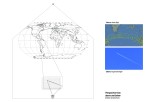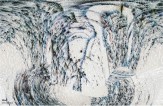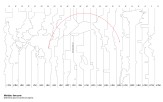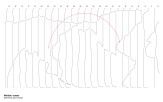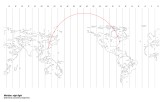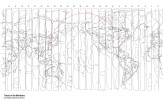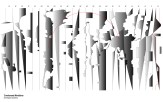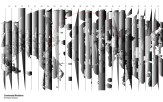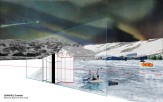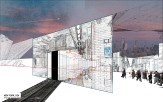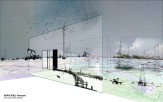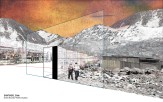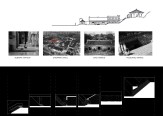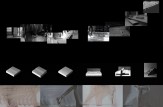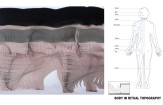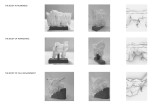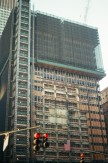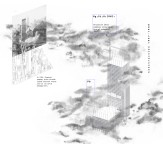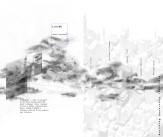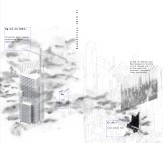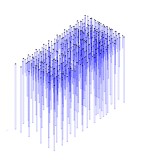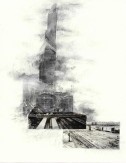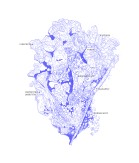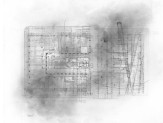Master of Architecture II Thesis 2020

GRADUATE THESIS
Assistant Professor Nora Akawi
Professor Anthony Vidler
The 2019-20 graduate Thesis studio occurred during the last months of 2020, a year that was incredibly challenging for students. The semester began with a suggestion for each student to consider the context in which they were creating their Thesis, and to see themselves participating in the building of a world of many worlds: un mundo donde quepan muchos mundos, borrowing from a Zapatista manifesto.
Each project is a window into the concerns and curiosities of each student, as they relate to and position themselves in the field of inquiry and design in architecture. Their work takes us from meridians in the body to meridians around the globe; from queer performance spaces and an architectural performance of mistranslation exposing cultural appropriation, to architectural ghosts, cracks, and the toxic dust of corporations; through ambiguity and void as design strategies and their potential for institutional critique, and into the troubling role of the photograph and the elevation in architecture’s understanding of the street, calling for the collapse of visual representation and political representation into a single act. We know, of course, that these projects are all only beginnings—the questions posed by students now will continue to follow each of them for some time to come.
Projects
-

Planespotting: Traversing the Meridians
-
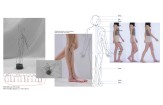
Comfortably Numb: The Case for Discomfort in Architecture
-
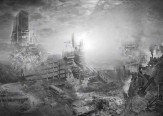
How Buildings (Dis)appear: The Metamorphosis of 270 Park
Back
Planespotting: Traversing the Meridians
Sally Chen
This Thesis began from three objects in one observable phenomenon: the sky, a plane, and its trace. The trace is proof of the plane’s existence. Through the lens of relativity, the trace becomes proof of our existence. Between the sky and the earth, a passenger and an observer exist in relative distance, speed, and time. As Peter Galison writes in Einstein’s Clock and Poincaré’s Map: “In looking down, we see up; in looking up, we see down.”
The project visualizes and conceives of the meridians as sections that register within them the intersections of cultures, environments, and politics. When the plane travels through a meridian, an imagined archive of the globe, it becomes a moving witness. Everything becomes relative. Everything is subsumed in one picture.
Comfortably Numb: The Case for Discomfort in Architecture
Yingxiao Chen
Comfortable environments have become the default aspiration in the design of our daily experience. This Thesis visualizes how modern standards in architecture control the body through the design of comfort, manipulating perception, attention, and consciousness.
Anesthesia in architecture would be the numbing of sensation, rendering spaces comfortable but also invisible. By contrast, acupuncture in architecture would cause discomfort, but also activate the body and stimulate consciousness and presence of the mind.
By using acupuncture points and meridians as a body template and scaling device in architecture, this Thesis documents and spatializes the kinesthetic experience required by various kinds of topographies and thresholds, and proposes a design tool focusing on the intersection of the body, consciousness, and architecture.
How Buildings (Dis)appear: The Metamorphosis of 270 Park
Roni Schanin
The built environment absorbs the events of our lives. As architecture has a prominent role in forming a memory, what happens to the memory once the architecture no longer exists? This project searches for remains and traces left after the destruction of architecture in its variable configurations.
In July 2019, JPMorgan Chase Tower's demolition on 270 Park Avenue in Manhattan began and is expected to become the tallest building ever to be voluntarily demolished. This historical event is a rare opportunity to take a closer look at the very moment where memory leaves its physical ground and transitions into its next metamorphosis.
The demolition operation spills over into spaces beyond the demolition site—clouds of dust and toxic substances disperse and wander uncontrollably in the atmosphere; therefore, the demolished building does not disappear but is instead displaced.

